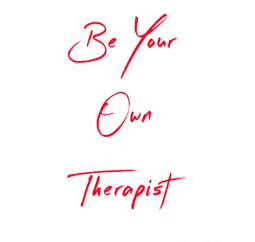By Patrick Cahillane – Life, Executive & Business Coach with One Source International Coaching and Training ( One Source International Coaching & Training ) & Founder of The One Source Personal Development Network

We live in a fast-paced and demanding world and taking care of our mental well-being is more important than ever. While seeking professional therapy is highly recommended for addressing deep-seated issues, it’s empowering to cultivate the ability to be your own therapist. By developing self-awareness, adopting healthy coping mechanisms, and practicing self-reflection, you can effectively navigate life’s challenges and promote personal growth. In this article, we will explore valuable techniques and strategies to help you become your own therapist.
- Cultivate Self-Awareness:
Self-awareness is the foundation of effective self-therapy. It involves observing and understanding your thoughts, emotions, and behavioral patterns. Start by creating moments of mindfulness in your daily life. Pay attention to your internal dialogue and emotional responses to various situations. Mindfulness meditation, journaling, or even talking to yourself can be helpful techniques to enhance self-awareness. By developing a deep understanding of your triggers, strengths, and areas for improvement, you gain valuable insights into your inner world.
- Challenge Negative Thoughts:
Negative thoughts can have a profound impact on our mental well-being. Becoming your own therapist means learning to identify and challenge these negative thought patterns. When negative thoughts arise, evaluate their validity and replace them with more positive and realistic alternatives. Cognitive-behavioral techniques, such as reframing and thought-stopping, can be incredibly effective in restructuring your thinking patterns. Remember, your thoughts shape your reality, so consciously cultivating a positive mindset is key.
- Embrace Self-Compassion:
Being your own therapist involves showing yourself the same kindness and compassion you would extend to a friend in need. Treat yourself with understanding and forgiveness, recognizing that everyone makes mistakes and faces challenges. Practice self-compassion by celebrating your achievements, setting realistic expectations, and prioritizing self-care. By fostering a nurturing and supportive relationship with yourself, you can effectively navigate difficult emotions and experiences.
- Develop Coping Mechanisms:
Life inevitably presents us with stress, uncertainty, and adversity. As your own therapist, it is crucial to develop healthy coping mechanisms to navigate these challenges. Find activities that bring you joy and help you relax, such as engaging in hobbies, exercise, or spending time in nature. Additionally, practice stress-management techniques like deep breathing exercises, progressive muscle relaxation, or mindfulness practices. By having a toolbox of coping strategies, you can proactively address stressors and maintain emotional well-being.
- Engage in Self-Reflection:
Regular self-reflection is a powerful tool for personal growth and transformation. Set aside dedicated time to reflect on your experiences, emotions, and decisions. Journaling is an excellent way to record your thoughts and delve into deeper self-exploration. Ask yourself thought-provoking questions that encourage introspection, such as “What can I learn from this situation?” or “How can I grow from this experience?” Self-reflection allows you to gain valuable insights, learn from past mistakes, and make informed choices moving forward.
Remember:
Becoming your own therapist is an empowering journey that allows you to take control of your mental and emotional well-being. By cultivating self-awareness, challenging negative thoughts, practicing self-compassion, developing healthy coping mechanisms, and engaging in self-reflection, you can navigate life’s challenges with resilience and promote personal growth. While self-therapy has its limits and professional support may be necessary for certain issues, embracing these techniques will enhance your overall well-being and empower you to lead a more fulfilling life. Remember, you have the power to be your own guide on the path to self-discovery and transformation.
